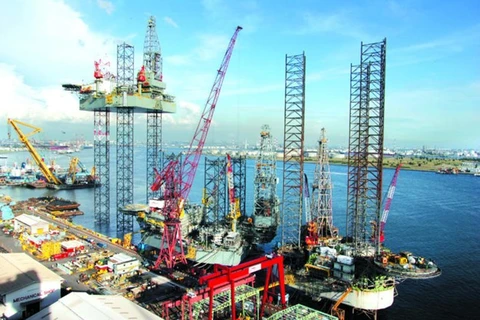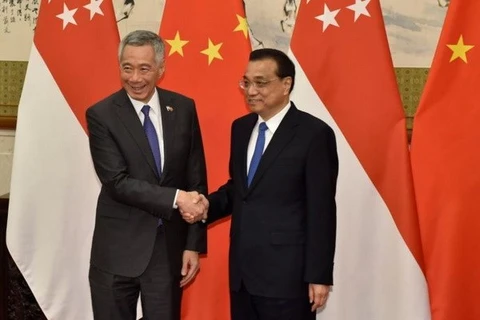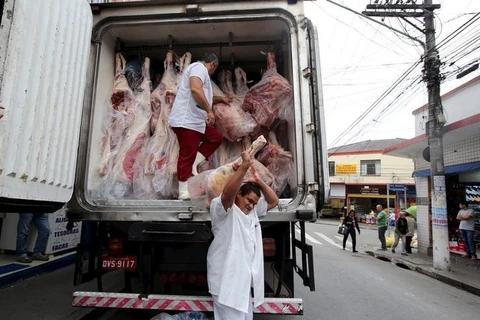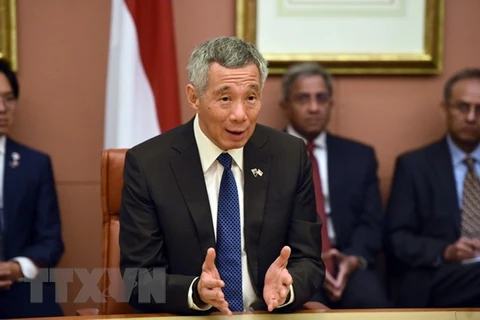 Singaporean Minister of Foreign Affairs Vivian Balakrishnan (R) and Brazilian counterpart Aloysio Nunes Ferreira after the signing of the Avoidance of Double Taxation Agreement on May 7, 2018 (Source: www.straitstimes.com)
Singaporean Minister of Foreign Affairs Vivian Balakrishnan (R) and Brazilian counterpart Aloysio Nunes Ferreira after the signing of the Avoidance of Double Taxation Agreement on May 7, 2018 (Source: www.straitstimes.com) Buenos Aires (VNA) – Brazil and Singapore have signed a double taxation avoidance agreement and are considering the possibility of signing a free trade agreement (FTA) between Singapore and Mercosur, the South America trade bloc.
According to a statement released by the Brazilian Ministry of Foreign Affairs on May 8, the agreement was inked by Singaporean Minister of Foreign Affairs Vivian Balakrishnan and his Brazilian counterpart Aloysio Nunes Ferreira.
The deal aims to prevent tax evasion and taxes paid twice on the same source of income of people staying in the two countries as well as foster bilateral investment.
In a meeting held in Singapore, the foreign ministers underlined the development of bilateral trade cooperation in recent years. They also discussed approach between Mercosur, comprising Brazil, Argentina, Paraguay and Uruguay, and the Association of Southeast Asian Nations (ASEAN).
Singapore is currently the fourth largest investor in Brazil with more than 1.4 billion USD in 2015. The Asian country mainly invested in airport management, shipbuilding, oil and gas, infrastructure, agriculture and transport in the leading economy of Latin America.
Meanwhile, Brazil is a main supplier of frozen poultry, beef and pork for Singapore. It recorded a trade surplus of 2 billion USD with Singapore in 2017 thanks to its exports of products with high-added value such as crude oil.
The statement also revealed that the first round of FTA negotiations between Singapore and Mercosur is scheduled to begin in the third quarter of 2018.-VNA























